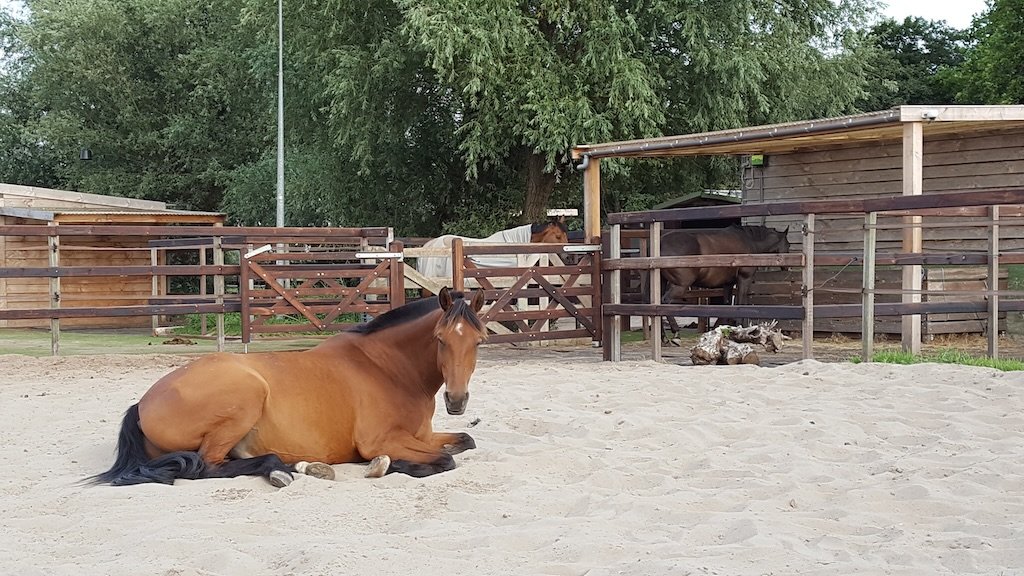Is your horse sleep deprived?
Sleep deprivation in horses is a topic that is only starting to be discussed more widely, and it might be more prevalent than we think. Here are some signs to look for.
Even though horses can rest standing up, they need to lie down to get deep sleep.
We rarely think about the quality of sleep in our horses. Generally, sleep issues are thought to be a human issue, but horses can have them too. In fact, they might be more prevalent than we think. While horses can rest standing up due to their ingenious stay passive stay apparatus that helps them stand up with very little muscular effort, they do need a couple of hours of recumbent sleep every day. This doesn’t not necessarily mean that they will lie down and sleep for three hours straight. They generally keep their sleep cycles shorter, even as short as 15 minutes, and sleep several times during the day and night.
Unless we have a video surveillance system set up, a lot of times we won't see our horses sleeping at all, especially the ones that get all their sleeping needs met during the night. Maybe this is why we rarely think about the quality of their sleep. What happens with some horses is they will develop an aversion to lying down to sleep. They will try to sleep standing up and might collapse if they enter deep sleep while on their feet. Obviously, this can cause injuries.
There are many reasons why a horse might not feel comfortable enough to lie down. Sometimes, the reason can be psychological. The horse doesn't trust his surroundings enough to risk lying down. Maybe he doesn't feel comfortable in the company of other horses, maybe he doesn't feel safe if he is alone, maybe he is bothered by too much noise around his living space. Another big factor is pain. A horse in pain might not want to lie down because this will either exacerbate the pain or they are worried they won't be able to get up again if they lie down. For some horses, a lack of good bedding can cause them to not lie down.
So, how can you tell if your horse is getting enough sleep? A horse can go pretty long without lying down to sleep, but eventually, he can't keep awake anymore. They will fall asleep standing up and most likely fall down. If this happens on a regular basis, most horses will develop sores on the fronts of their front fetlocks. They might become agitated or anxious and their performance will usually suffer. With some horses you can see wrinkles under their eyes, similar to what we see in sleep deprived humans. Another red flag is if the horse is clean all the time. A horse that lies down will get shavings or dirt on them. If you never see any shavings on your horse, this might be a cause for concern.
Abrasions on the front of the fetlocks are very often the consequence of the horse collapsing due to sleep deprivation.
What can be done? If you suspect your horse isn't sleeping, make sure to implement strategies to reduce stress and make him feel comfortable in his surroundings. Make sure the space he is sleeping in is big enough and has good quality bedding. Ensure peace and quiet during the night. Get a vet out and do a full check-up, to eliminate the possibility of pain. If this doesn't work, keep looking. Some horses need to be taught how to relax and meditation can be a great way to achieve that. Sleep is really important for any animal, and we owe it to our horses to ensure they are getting a good night's sleep.

